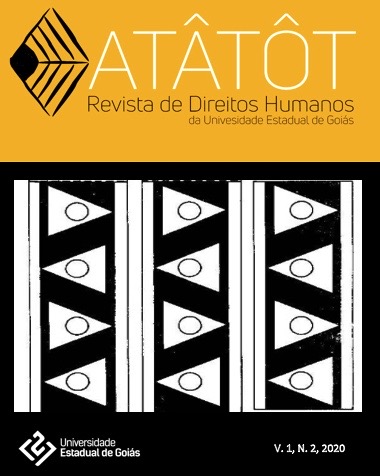The Legacy of Transitional Justice in Brazil:
Experiences and Challenges
Keywords:
amnesty, military dictatorship, memory, truthAbstract
This paper is the result of more than a hundred hours of digital research and field research on transitional justice in the city of Recife. It was taken as a starting point UN Security Council Resolution S/2004/616 on the rule of law and transitional justice in post-conflict societies and the international doctrinal construction on transitional justice from the International Center for Justice of Transition (ICTJ). According to these standings, how does this phenomenon (of transitional justice) become concrete and accessible in Recife city? Experiences made, documented and made available through the internet, in addition to the experiences scattered in various places of the city were used to anwer the question. Then, ten categories of experiences were identified: 1. places of/to memory; 2. Collective groups actions about memory, truth and justice; 3. books; 4. documentaries and reports; 5. audios; 6. feature films and theater plays; 7. internet channels; 8. special projects; 9. justice (national and international jurisdiction); and 10. institutional changes. From the material collected, it is possible to understand that: a. there is a specific action by civil society; b. there is an individual repair mechanism; c. there is diffuse symbolic reparation; d. there is a new truth conception; e. some places of memory remain as non-memory; f. the judicialization of criminal facts against humanity remains hampered in national jurisdiction; g. there were no measures about profound institutional changes in the Brazilian State.
Downloads
Published
Issue
Section
License
Copyright (c) 2020 Atâtôt - Interdisciplinary Journal of Human Rights (UEG)

This work is licensed under a Creative Commons Attribution-NonCommercial-NoDerivatives 4.0 International License.










